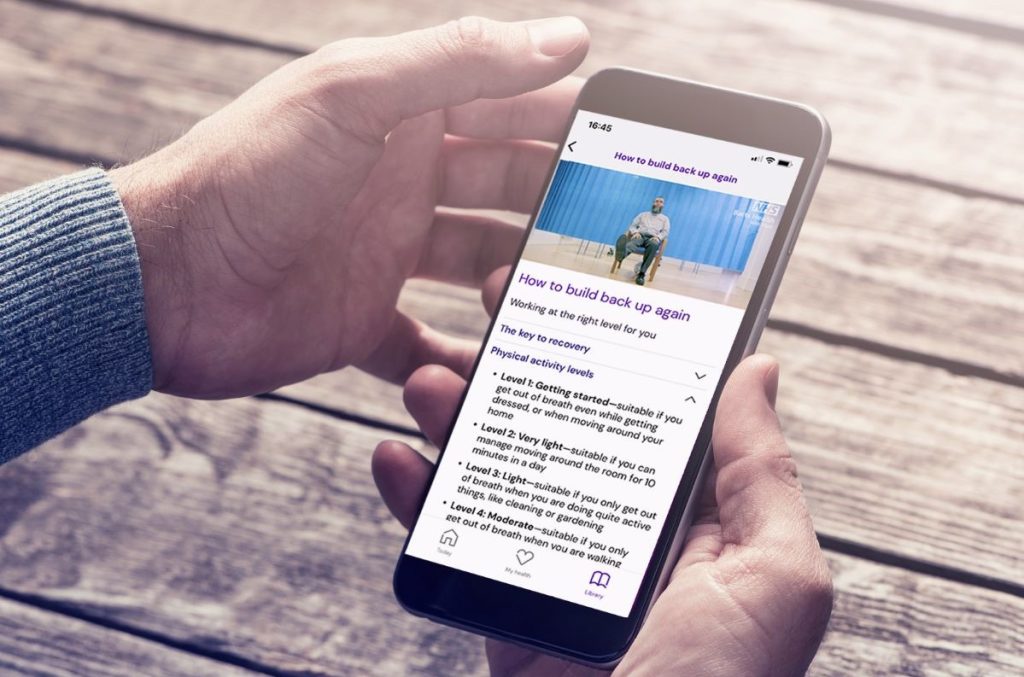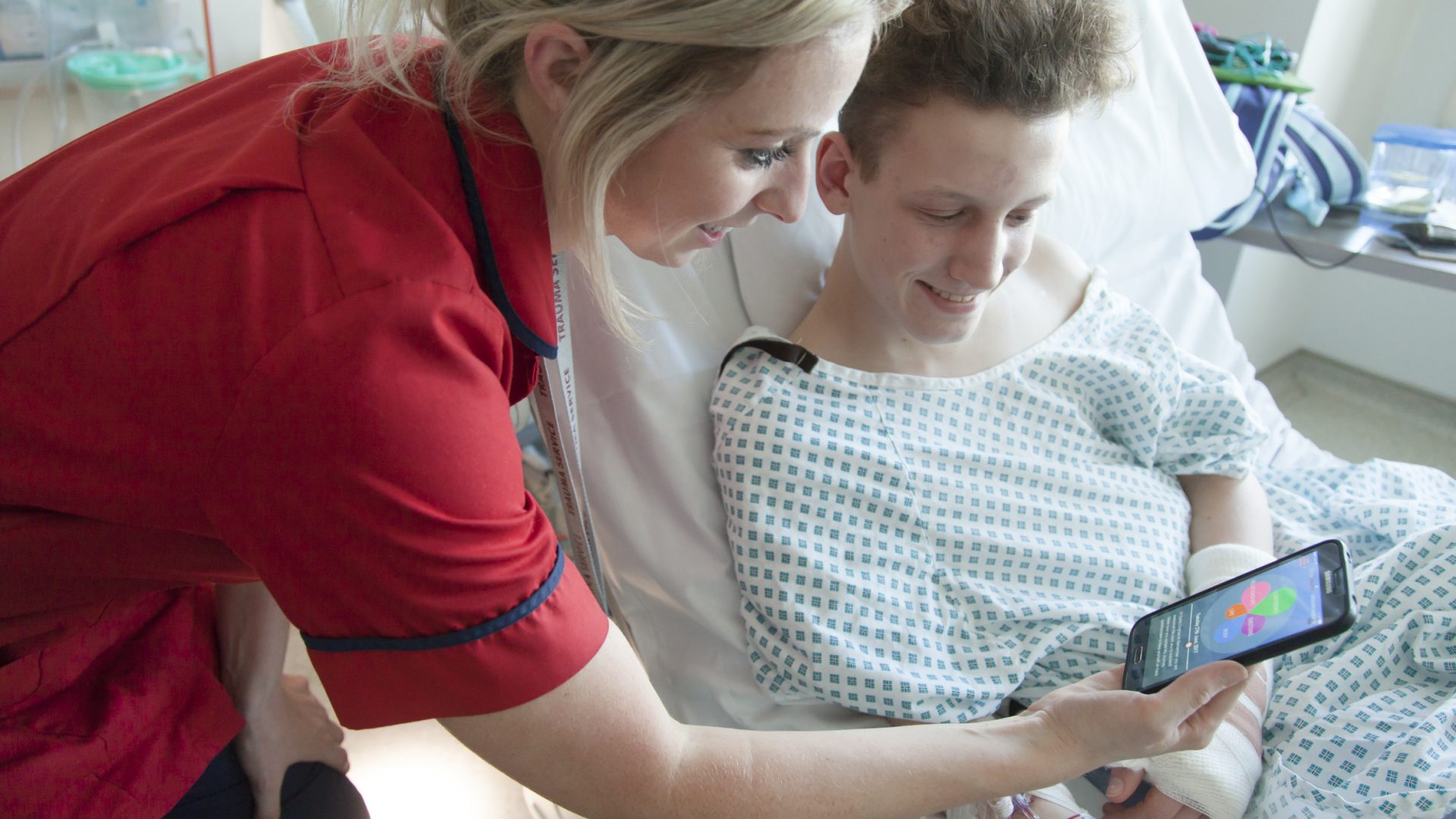Helping people to recover from Covid-19
We’re giving a £337,000 package of funding to help people who have been ill with Covid-19 to recover from the virus.
Patients across Barts Health NHS Trust who have been in an Intensive Care Unit (ICU) will soon be able to access additional therapy from psychologists, occupational therapists, and physiotherapists.
These extra therapies will be available from September 2021 in the post-ICU clinics at St Bartholomew’s, The Royal London, Whipps Cross and Newham hospitals, helping the clinics to cope with the huge backlog of patients created by the pandemic.
The funding will also provide therapists to work alongside core medical staff in Covid-19 respiratory follow-up clinics, providing physiotherapy, psychology and a lung function physiologist.

Covid-19 symptoms app
Meeting additional need
Anthony Bastin, Consultant in Critical Care and the lead for critical care follow-up at St Bartholomew’s Hospital, said:
“Many hundreds of patients have required intensive care at Barts Health NHS Trust during the Covid-19 pandemic, and a significant number have needed prolonged rehabilitation and support following ICU and hospital discharge.
“This generous grant from Barts Charity will help our critical care follow-up services meet the increased demand for supporting patients and their families in their physical and psychological recovery, by funding additional specialist expertise from occupational therapists, physiotherapists and psychologists.
This will not only support patients following Covid critical illness, but also those survivors of non-Covid critical illness, at a time when existing hospital and community services are under enormous strain”.
This will not only support patients following Covid critical illness, but also those survivors of non-Covid critical illness.Anthony Bastin, Consultant in Critical Care at St Bartholomew's Hospital
Benefitting more patients
“This generous grant from Barts Charity will allow us to adapt the app for non-English speakers, as well as enabling patients without direct access to a smartphone or tablet to add a friend or relative to be their proxy, meaning that even more of our patients will be able to benefit.”


